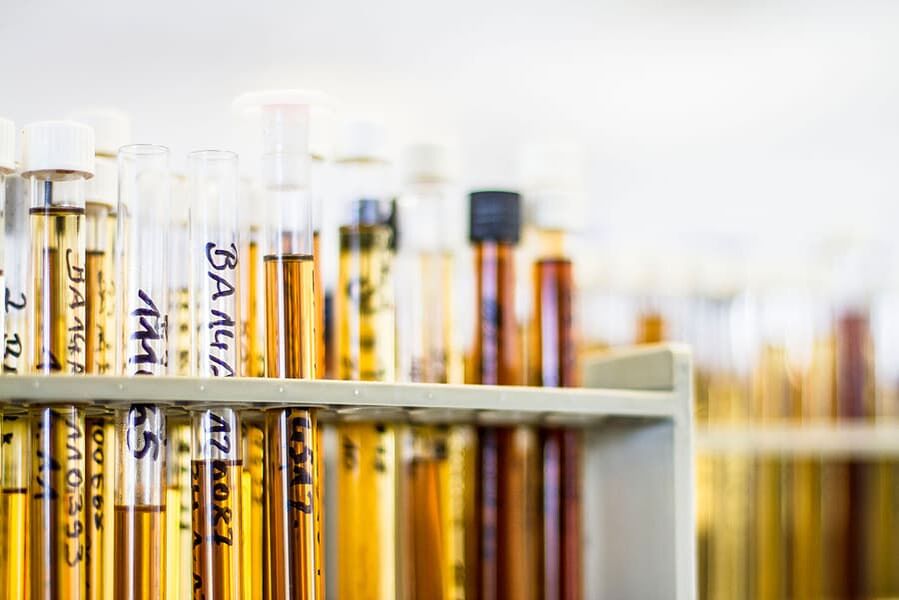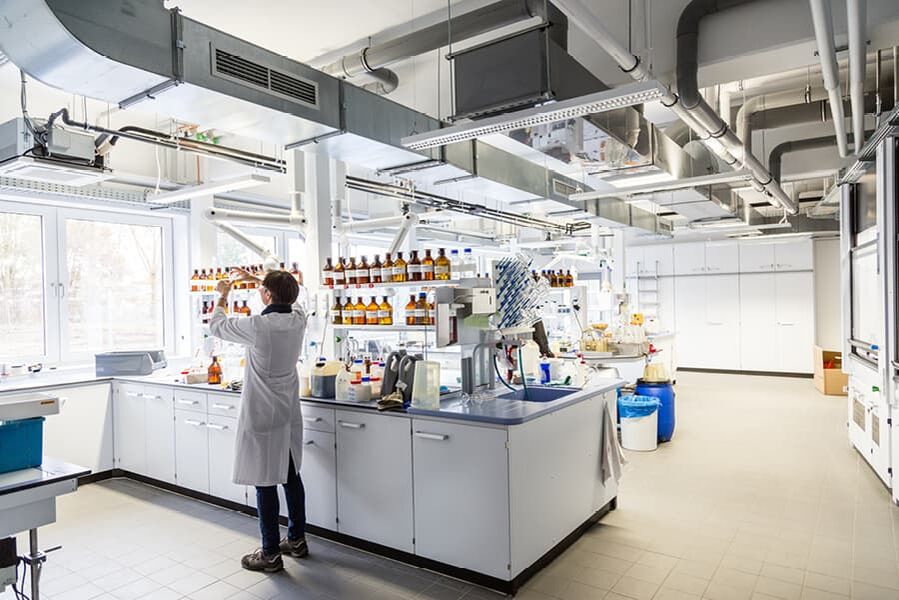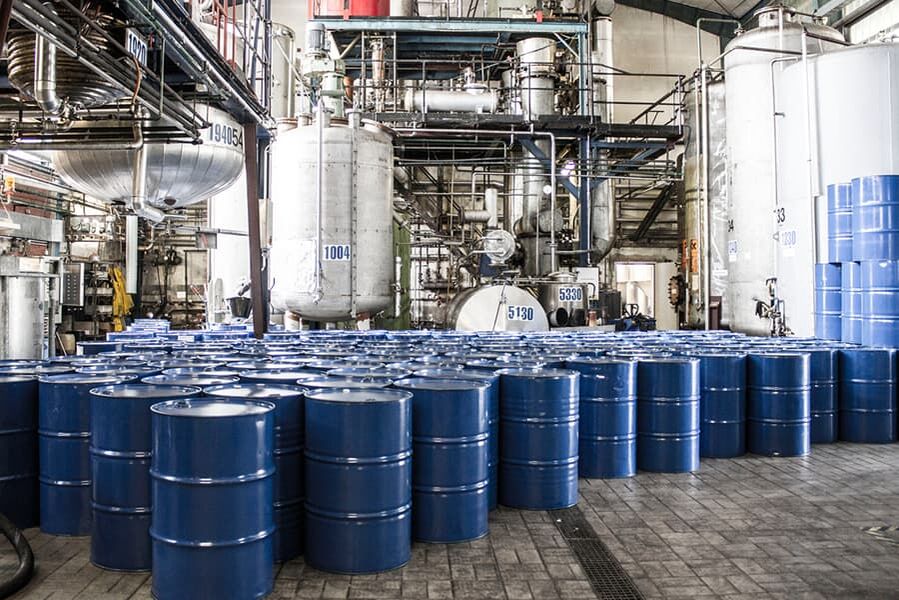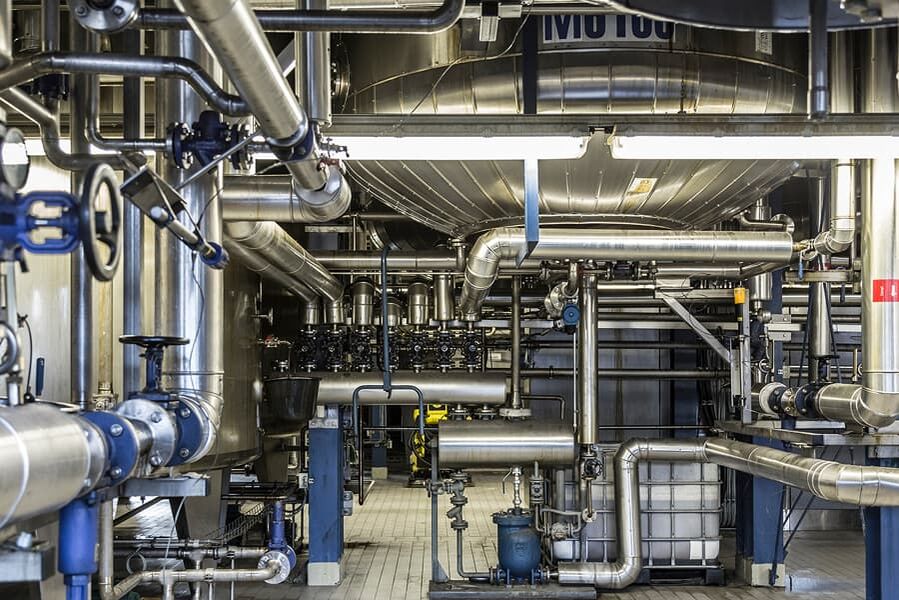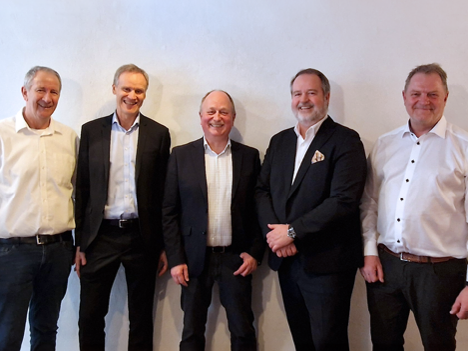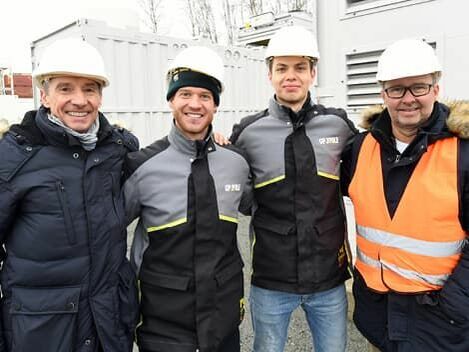Interview with Johannes von Cossel from Additiv-Chemie Luers
Specialization and Sustainability as Keys to Success in the Chemical Industry
Johannes von Cossel has been the CEO of Additiv-Chemie Luers GmbH & Co. KG (short: ACL), a subsidiary of the DS Group, for four years. The Delmenhorst-based chemical company specializes in the production of additives, package solutions, and specialty products for metalworking. In the interview, we discussed strategies for positioning in a specialized niche and the importance of sustainable products.
The chemical industry in Germany has recently faced various challenges. Among them is the impact of high energy prices, which have adversely affected production. Many companies have experienced revenue losses and had to scale back investments. Major companies like Evonik have significantly reduced their workforce. Despite these circumstances, Additiv-Chemie Luers successfully concluded the 2023 fiscal year. What factors contributed to this positive outcome?
While the increased energy costs, approximately 200,000 to 250,000 euros per year, are noticeable, they pale in comparison to the expenses borne by large energy-intensive companies like BASF or Evonik. In addition to oil from DS and gas, we also have access to cost-effective electricity from our own photovoltaic system.
We operate in a highly specialized market segment and are well acquainted with its influences and challenges. We confront these challenges head-on and focus on sales. We have successfully expanded our trading business. Particularly, products from our own manufacturing are of great importance to Additiv-Chemie Luers as they serve as a significant revenue driver and ensure employment in production. Therefore, we place great emphasis on their further development and distribution.
What strategies does Additiv-Chemie Luers pursue to successfully position itself in the specialized niche of the chemical industry?
Our strength lies in the specialty business. Unlike the large-volume business in the energy sector, we specialize in smaller quantities with higher margins. A central element of our strategy is to take over distribution for other companies in Europe to generate additional revenue. A successful example of this is our partnership with a South African company. As a new distribution partner, we now distribute their product with an annual volume of over 200 tons in the European market. Our goal is to further expand this volume.
Furthermore, we engage in development projects in cooperation with other companies. A recent example is our defoamer project, which we initiated in 2018. We have been distributing the specialty defoamer in our market segment since early 2024. Defoamers are specialty products sold in smaller quantities and offer attractive margins.
Additiv-Chemie Luers places great emphasis on sustainability. What specific steps have you taken to make your products and processes more sustainable, and how have your customers responded to these initiatives?
We view sustainability as an integral part of every customer interaction. However, the discussion about sustainability doesn't stop at mere conversation; it's about taking concrete actions and measures. Many customers want to demonstrate their active engagement in sustainability, but thus far, the topic hasn't been fully commercialized.
In petrochemistry, making products more sustainable presents a complex challenge. One approach is to use alternative synthetic raw materials such as esters and vegetable oils instead of mineral oil. These alternatives are more environmentally friendly but also costlier. The central question remains whether the market is willing to bear these additional costs – and often, that's not yet the case. Additionally, the definition of "sustainable" varies widely. For us, aspects like biodegradability, solvent-free (VOC-free) formulations, product labeling, and being free from mineral oils are paramount.
At our site, we're actively working to make our business processes more sustainable. This includes measures such as reducing paper consumption through increased digitalization, switching to green energy sources, installing our own photovoltaic system, and optimizing our heating processes through technical enhancements. Moreover, by reducing the wall thickness of our barrels, we can minimize steel consumption and thus save CO2 emissions.
Are you planning expansion, growth, or renovation measures?
In 2017, following DS's advice, we purchased the adjacent and rear plots of land. Now, we have more than double the area available in Delmenhorst. We've submitted a BIMSCH application to the Industrial Safety Authority in Oldenburg to construct a warehouse with potential production facilities here. Additionally, we're planning a new, optimized truck route around the buildings.
Expanding our storage spaces is particularly crucial as our trading business has experienced significant growth in recent years, necessitating additional storage space. The necessary loan for these expansion plans has already been approved. Currently, we are in the approval phase, awaiting final consent from the Industrial Safety Authority.
This year, the DS Group expanded its chemical sector by acquiring the Norwegian innovator Sparks AS. How do you assess this acquisition in the context of the DS Group, and what potentials do you see for future collaborations?
Sparks has been a long-standing trading partner of our subsidiary, Esti Chem. The company is led by two experienced colleagues who have a deep understanding of the market and the specificities of the Scandinavian region, including climatic conditions. Sparks currently focuses on supplying the Norwegian oil industry with environmentally friendly or biodegradable cleaning agents. A forward-thinking project is the cleaning of oil platforms, which need to be decommissioned due to the decline in oil production. Esti Chem is already active in this area.
The Scandinavian market is characterized by an advanced attitude towards renewable resources. In collaboration with Sparks and Esti Chem, we see significant potential for joint product development and expansion into new distribution territories. Additionally, there's an opportunity to further develop and market "Green Fuels" such as HVO (Hydrotreated Vegetable Oil, a biofuel made from hydrogenated vegetable oil) together with the DS Group's energy sector.
We view the acquisition of Sparks very positively, seeing it as an excellent opportunity to further expand the DS Group's business in the chemical sector and to benefit from the experiences and expertise of Sparks and Esti Chem.
Are further acquisitions planned?
We continue to look for suitable smaller companies to drive our growth both organically and through acquisitions. With this strategy, we expand our business fields and strengthen our market position.
What role does the production site of Alpha Chemie in Freital play?
Alpha Chemie plays an important role in our production network. Although it is a small production facility with only 5 employees, it produces an impressive 800 tons of product per year (ACL produces a total of just under 8,000 tons). Alpha Chemie is particularly valuable to us because it manufactures raw materials needed by Additiv-Chemie Luers in the field of corrosion protection and sells them to the lubricant industry. Through this "backward integration," we secure an independent supply of our own raw materials and thereby strengthen our market position.
The integration of Alpha Chemie into Additiv-Chemie Luers has developed positively and is strategically important to us. As a sign of our commitment and appreciation, we have erected a new warehouse in Freital and are continuously modernizing and renewing the production facilities and infrastructure.
When visiting Additiv-Chemie Luers, one immediately notices the warm and familial atmosphere within the team. What common values do you, as CEO, share with the DS Group?
I appreciate the medium-sized values that connect us with the DS Group. Particularly, I value the Hanseatic mentality, which stands for reliability, honesty, and fairness.
Our team consists of around 50 employees, and I place great importance on personal contact. I regularly visit the production area, engage with team members, and am present in the operation. For me, it's crucial that we work together as a team, support each other, and collaborate towards our goals. This team orientation and mutual respect are central values that are highly regarded both at Additiv-Chemie Luers and throughout the DS Group.
Our collaboration with the DS Group is very valuable and successful. We appreciate the support we receive in various areas, whether it's strategic matters, accounting, human resources, or marketing. These synergies and the shared corporate culture make working with the DS Group very pleasant and productive for us.


